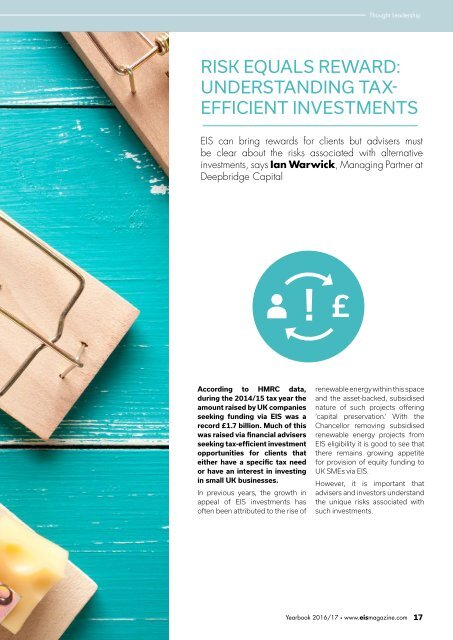2fnoNyY
2fnoNyY
2fnoNyY
You also want an ePaper? Increase the reach of your titles
YUMPU automatically turns print PDFs into web optimized ePapers that Google loves.
Thought Leadership<br />
RISK EQUALS REWARD:<br />
UNDERSTANDING TAX-<br />
EFFICIENT INVESTMENTS<br />
EIS can bring rewards for clients but advisers must<br />
be clear about the risks associated with alternative<br />
investments, says Ian Warwick, Managing Partner at<br />
Deepbridge Capital<br />
According to HMRC data,<br />
during the 2014/15 tax year the<br />
amount raised by UK companies<br />
seeking funding via EIS was a<br />
record £1.7 billion. Much of this<br />
was raised via financial advisers<br />
seeking tax-efficient investment<br />
opportunities for clients that<br />
either have a specific tax need<br />
or have an interest in investing<br />
in small UK businesses.<br />
In previous years, the growth in<br />
appeal of EIS investments has<br />
often been attributed to the rise of<br />
renewable energy within this space<br />
and the asset-backed, subsidised<br />
nature of such projects offering<br />
‘capital preservation.’ With the<br />
Chancellor removing subsidised<br />
renewable energy projects from<br />
EIS eligibility it is good to see that<br />
there remains growing appetite<br />
for provision of equity funding to<br />
UK SMEs via EIS.<br />
However, it is important that<br />
advisers and investors understand<br />
the unique risks associated with<br />
such investments.<br />
Yearbook 2016/17 · www.eismagazine.com<br />
17


